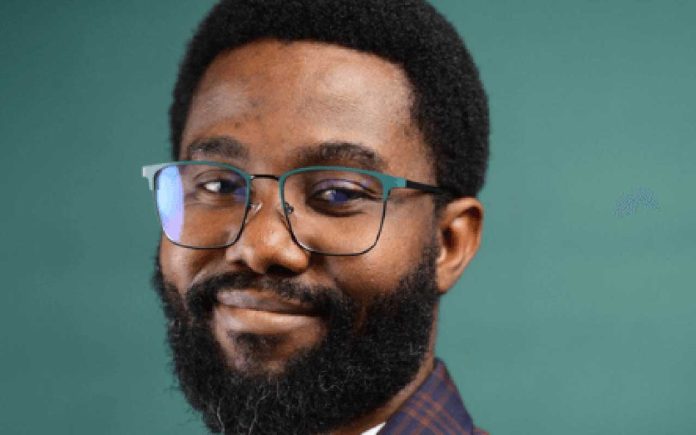LAGOS — In a groundbreaking move to dismantle the systemic barriers excluding millions of Nigerians with disabilities from the workforce, experts, human rights advocates, and corporate leaders have issued a clarion call for urgent reform of Nigeria’s employment policies and workplace practices.
The call to action came during the launch of Nigeria’s first-ever Lagos Inclusive Career Fair for Talents with Disabilities, a transformative event organised by Blakskill in collaboration with Sightsavers, held at the Digital Bridge Institute, Lagos.
With a theme focused on **”Fostering Diversity, Equity, and Inclusion,”** the career fair did more than connect employers to a highly skilled but often overlooked talent pool—it ignited a passionate conversation about dismantling discrimination and realising the untapped potential of Nigeria’s over 30 million persons with disabilities (PWDs).
Only 3% Formally Employed – A National Emergency
At the heart of the dialogue was the sobering statistic that only 3% of PWDs in Nigeria are formally employed, according to organisers. For many, this is not just a statistic but a national emergency that demands immediate and intentional interventions.
Delivering the keynote address titled “Inclusive Employment Policies & Workplace Diversity,” Michael Alasa, Chief Executive Officer of Blakskill, delivered a bold and data-driven wake-up call.
“This is unacceptable. When we exclude talent, we cripple our economy, our industries, and our nation’s future,” Alasa declared, adding that Nigeria loses over ₦10 trillion annually as a result of excluding PWDs from the formal workforce.
Alasa advocated for the implementation of a mandatory 10% employment inclusion quota for PWDs in both government institutions and private sector organisations with a workforce exceeding 50 employees.
Demand for Full Implementation of the Disability Act (2018)
Alasa didn’t mince words in calling out government inaction. He urged the Federal Government to fully implement the Discrimination Against Persons with Disabilities (Prohibition) Act 2018, especially its employment-related provisions. He also called for strict penalties for organisations that continue to operate without inclusive hiring frameworks.
To encourage corporate commitment, Alasa proposed financial incentives, such as tax rebates, grants, and subsidised training programmes for inclusive employers.
“Inclusion should not be charity—it should be a core part of business strategy and national development,” he said.
He also highlighted that less than 5% of PWDs in Nigeria have access to higher education, vocational training, or employment opportunities, largely due to infrastructural barriers, policy gaps, and entrenched stereotypes.
Technology and Accessibility: The Future of Inclusive Workspaces
Emphasising the future of work, Alasa called for increased investment in digital upskilling for PWDs, particularly in technology, cybersecurity, AI, digital marketing, and remote customer service, where physical barriers are less limiting.
He encouraged employers to re-evaluate their hiring practices and noted that companies with **diverse teams are 35% more likely to outperform their competitors.
Disability as Talent, Not a Limitation
Gambo Yohanna, Programme Officer for Economic Empowerment at Sightsavers, echoed Alasa’s sentiments, urging employers to stop viewing disability through a lens of limitation.
“There are thousands of highly skilled persons with disabilities in Nigeria, yet they are overlooked because of age-old stereotypes,” Yohanna said. “Disability should not be seen as a burden, but as an opportunity for businesses to tap into a vastly underserved talent pool.”
He also pointed out that 15% of Nigeria’s estimated 250 million population live with disabilities, and businesses that champion inclusivity not only benefit from dedicated talent but also gain access to a large and untapped consumer base.
Yohanna urged organisations to revise their **HR policies, job advertisements, interview processes, and physical environments** to be accessible, particularly for applicants who are visually impaired or deaf.
Private Sector Leadership: Walking the Talk
Several corporate leaders at the fair used the platform to demonstrate what real inclusion looks like in practice.
David Owumi, Executive Director of SALT House, said the conversation on disability inclusion in the workplace is long overdue, adding that his organisation currently employs 3% PWDs and is working to scale that number up.
“The Discrimination Against Persons with Disabilities Act mandates a minimum of 5% inclusion. We must hold ourselves accountable as employers and ensure that we meet and exceed this requirement,” Owumi stated.
From the tech space, Uchechi Placid, Senior HR Business Partner at CWG Plc., revealed that 2% of CWG’s workforce consists of PWDs. He expressed the company’s intention to increase this figure through platforms like the inclusive career fair.
“One of the biggest assets persons with disabilities bring to the workplace is their unmatched loyalty and determination. In many cases, they outperform their counterparts. It’s time employers recognised that,” Placid added.
Showcasing Certified Talents
The inclusive career fair wasn’t just a place for policy talk—it was a platform for action. It showcased a wide range of job-ready talents with disabilities trained in areas such as product design, data analysis, customer service, CISCO networking, and project management.
Many of these talents had undergone rigorous capacity-building programs facilitated by the Digital Bridge Institute, earning globally recognized certifications—a testament to their readiness to contribute meaningfully to the workforce.
Employers had the opportunity to engage with these professionals, conduct interviews, and explore partnerships, making the event a model for future inclusive hiring events across the country.
Looking Ahead: From Inclusion to Empowerment
As Nigeria grapples with high unemployment and economic recovery, the message from the Lagos Inclusive Career Fair is clear: inclusive employment is not just a moral imperative—it is an economic necessity.
With powerful advocacy, practical solutions, and government accountability, Nigeria can lead Africa in building a workforce that truly reflects the nation’s diversity and potential.
The time to act is now—because when we include everyone, we build a better future for all.


